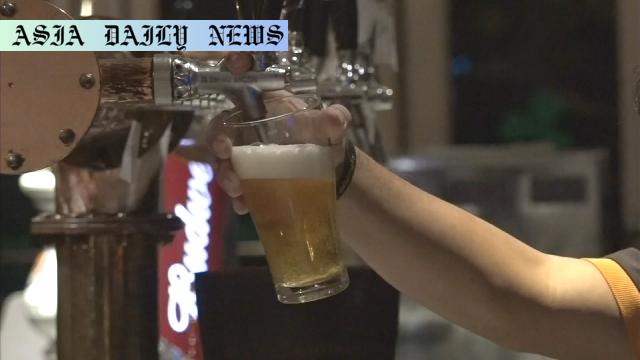alcohol ban: Thailand considers lifting its long-standing alcohol sales ban between 2 pm and 5 pm to boost its tourism sector.
Thailand is reevaluating its afternoon alcohol sales ban after 50 years.
Tourism industry pressures are driving reconsideration of the law.
Prime Minister Paetongtarn Shinawatra prioritized the decision, targeting March.
The restriction aimed to prevent government officials from drinking at work.

Introduction: A 50-Year-Old Law in the Spotlight
Thailand is contemplating lifting its long-standing ban on the sale of alcohol between 2 pm and 5 pm. Introduced over five decades ago, this restriction was initially implemented to deter government officials from consuming alcohol during their working hours. With tourism being a major pillar of the Thai economy, the measure is now being scrutinized as the country seeks to revitalize its post-pandemic travel sector.
The Law and Its Origins
For over 50 years, Thailand has prohibited alcohol sales during the mid-afternoon. While the law originally targeted workplace behavior, its impacts have extended to consumers and businesses alike. The restriction has created challenges for vendors and caused misunderstandings with foreign tourists, many of whom are unaware of the specific timeframe. This often translates into unsatisfied visitors and missed business opportunities for the tourism-dependent nation.
Tourism Industry’s Role in Lifting the Ban
Tourism contributes significantly to Thailand’s GDP, making it vital to address obstacles that hinder industry growth. Many business owners have voiced concerns about the restrictive nature of the law, highlighting how it limits their ability to meet tourists’ expectations. After the pandemic brought global travel to a standstill, Thailand has focused on fostering a welcoming and competitive environment to attract new visitors. Relaxing the alcohol sale ban could be a step in this direction.
Challenges and Possible Implications
While there are clear economic benefits to lifting the alcohol ban, concerns remain regarding public health and social behavior. Critics argue that easier access to alcohol may increase drinking-related incidents, while others suggest that any law adjustments should be accompanied by public awareness campaigns on responsible drinking. Balancing industry interests and societal welfare will be a critical point in the decision-making process.
Prime Minister’s Vision
Prime Minister Paetongtarn Shinawatra has called for relevant ministries and agencies to evaluate the law thoroughly. By prioritizing a well-informed decision by March, the government signals its commitment to making evidence-based choices that align with its economic recovery goals. This move could potentially transform Thailand’s tourism experience, offering visitors greater convenience while boosting revenue for local businesses.
The Road Ahead
As Thailand navigates the complexities surrounding the alcohol ban, the government must weigh the interests of various stakeholders. If the ban is successfully lifted, it may serve as a notable example of modernizing laws that are out of step with contemporary needs. All eyes will be on the government’s deliberations as the March deadline approaches.
Conclusion
The proposed relaxation of Thailand’s afternoon alcohol sales ban is not merely about selling beverages; it represents the broader effort to adapt regulations to better fit current social and economic dynamics. The decision, if taken, could be a significant milestone in the country’s journey to reinvigorate its tourism sector, balancing tradition with progress.



Commentary
A Necessary Evolution for Thailand’s Tourism Sector
Thailand’s contemplation of lifting its decades-old alcohol sales ban marks an important step in recognizing the changing nature of its tourism and cultural practices. The nation is no stranger to hosting millions of travelers annually, many of whom admire its unique blend of tradition and modernity. However, outdated restrictions, including the afternoon alcohol sales ban, have often been a source of frustration for visitors, limiting their enjoyment of the vibrant Thai lifestyle.
A Balancing Act Between Tradition and Modern Needs
While the move to potentially lift the ban is a positive sign for tourism, it does raise crucial questions about maintaining a balance between fostering economic growth and protecting societal interests. Thailand’s government must tread carefully to ensure that any changes to the law are paired with strong education campaigns promoting responsible alcohol consumption. By doing so, the nation can mitigate concerns while benefiting its economy.
Why Timing Is Key
The timing of this discussion is critical. With global tourism gradually recovering from the pandemic, the Thai government’s proactive approach demonstrates a clear focus on growth. Implementing tourist-friendly policies like the proposed ban lift could give Thailand a distinct edge over other destinations. At the same time, this move needs to be part of a larger strategy to address other visitor pain points, such as infrastructure and communication barriers, to amplify its impact.
Final Thoughts
Ultimately, amending such long-standing legislation reflects a nation willing to evolve for the greater good. As Prime Minister Paetongtarn Shinawatra and her team deliberate this issue, their decision could set a precedent for balancing heritage with progress, ensuring Thailand remains a top choice for international travelers in the years to come.